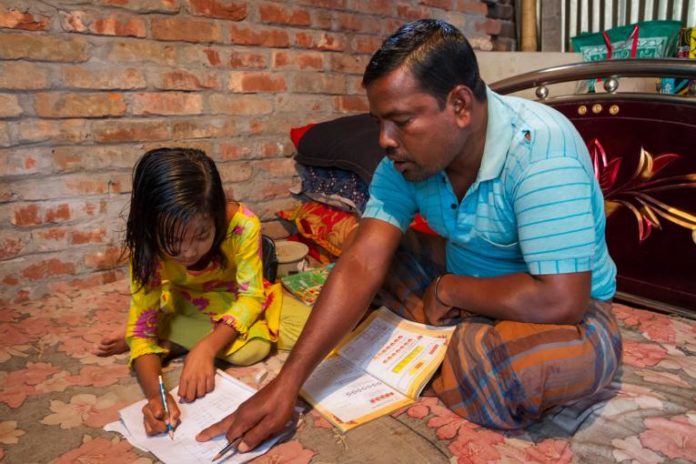New Delhi (NVI): Children from low-income countries have lost almost four months of schooling since the beginning of the COVID-19 pandemic, according to a new report.
The joint report by UN Educational, Scientific and Cultural Organization (UNESCO), UN Children’s Fund (UNICEF) and the World Bank showed, “Children in low-and lower-middle-income countries have lost nearly four months of schooling since the start of the COVID-19 pandemic, compared to six weeks of loss in high-income countries.”
The organizations conducted survey on national education responses to COVID-19 carried out in nearly 150 countries between June and October.
The report highlighted that school children from poorest countries missed schooling because they were the least likely to access remote learning and to be monitored on their learning loss during the pandemic.
They were also the most likely to have delays to their schools reopening and to attend schools with inadequate resources to ensure safe operations.
Robert Jenkins UNICEF Chief of Education said, “We don’t need to look far to see the devastation the pandemic has caused to children’s learning across the world. In low- and lower-middle income countries, this devastation is magnified as limited access to remote learning, increased risks of budget cuts and delayed plans in reopening have thwarted any chance of normalcy for schoolchildren.”
“Prioritising reopening schools and providing much-needed catch-up classes are critical,” he added.
Notably, more than two-thirds of countries have fully or partially reopened their schools and one in four have missed their planned reopening date or not yet set a date for reopening, most of which are low- and lower-middle-income countries, the report said.
“One in five low-income countries reported that remote learnings days count as official school days, recognising the low-impact of remote learning measures, compared to three-quarters of countries worldwide,” it added.
Of the total 79 countries, 40 per cent of low-and lower-middle-income countries have either already experienced or anticipate decreases to their country’s education budget for the current or next fiscal year.
Moreover, most countries reported that student learning is being monitored by teachers, a quarter of low- and lower-middle-income countries are not tracking children’s learning.
Around two in three of low-income countries were introducing measures to support access or inclusion for those at risk of exclusion.
The report further said that, to continue teaching during school closures, more than 90 per cent of high- and upper-middle-income respondents required teachers, compared to less than 40 per cent of low-income country respondents.
“The pandemic will notch up the funding gap for education in low and middle-income countries. By making the right investment choices now, rather than waiting, this gap could be significantly reduced,” said Stefania Giannini, UNESCO Assistant Director-General for Education.
Apart from this, almost all countries included remote learning in their education response, in the form of online platforms, TV and radio programmes and take-home packages, as per the report.
In addition to this, 9 in 10 countries facilitated access to online learning, most frequently through mobile phones or offering internet access at subsidized or no cost, but the coverage of this access was extremely varied.
“6 in 10 countries provided materials to help guide parents in home-based learning, while 4 in 10 countries provided psychosocial counselling to children and caregivers during school closures,” the report added.
However, these efforts were more common among high-income countries and in environments where resources were already available.
-RJV








